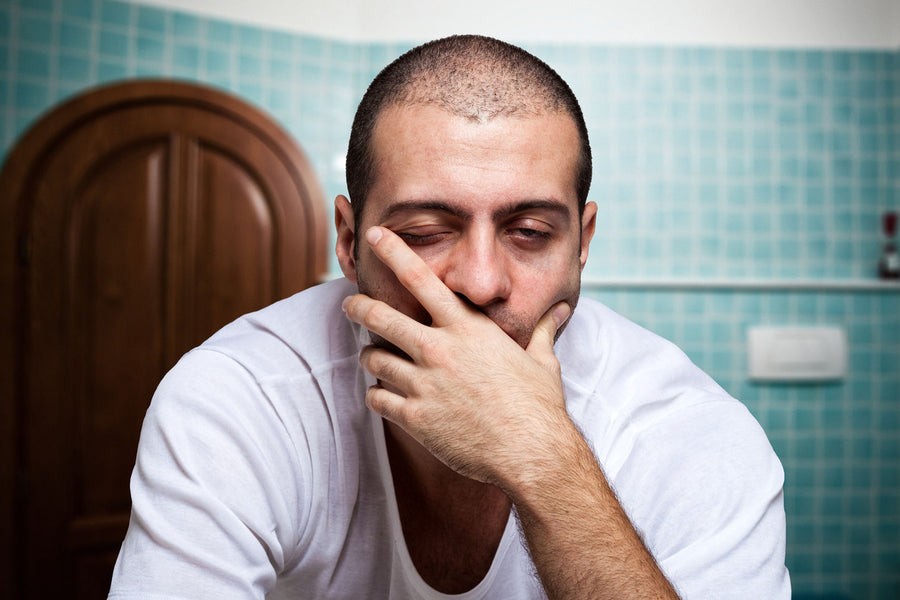
If you’re really into a TV show at the moment and guilty of a few too many late night binge-watching sessions, then you’re probably going to hate reading this. If you’re prone to late-night Facebook habits, or enjoy staying up to play video games or shop online, then you probably will too.
This blog post is about the scientific evidence showing there’s a connection between regularly not getting enough sleep and having bad health. It’s also about how I think one of the keys to good health is to switch off the TV, and put away your smart-devices after sunset.
My realisation has been gradual. It started when I was shooting my film, The Connection, and we were setting up an interview with Professor George Jelinek, who now heads the Neuroepidemiology Unit at the Melbourne University School of Population and Global Health. I was there to find out more about his remarkable lifestyle program helping people to recover from MS and while the camera was being set up and we were sound checking, I turned to my usual small-talk conversation topic, film and TV. But we soon ran out of things to discuss. Jelinek didn’t watch many TV shows or movies. “What do you do at night to unwind?” I asked, thinking of my own enthusiasm for the show Deadwood, which at the time had involved staying up until 3am more than once to watch just one more episode. “Well,” he said thoughtfully, “I meditate, I read, I talk to my family, I don’t really have the time for much more.”
I went into that interview wanting to know what more I could be doing to live well despite having been diagnosed with an incurable autoimmune disease, and I walked away with many gems of advice such as the need to prioritise eating well, stressing less, nourishing relationships, and balancing my emotions. (All this is in the extended interview with Jelinek if you want to know more.) But it’s only now, four years later, that I realise that one of the best pieces of advice he inadvertently gave me was to stop watching so much TV.
What I didn’t know then is that sleep and our immune system are intimately connected. For example, sleep deprivation reduces the number of germ-fighting T-cells in your bloodstream, whose job is to hunt down and destroy cells that are infected with germs or that have become cancerous. If you’ve ever woken up with a stuffy nose and headache after burning the midnight oil, you won’t be surprised that being short on sleep makes you more susceptible to the flu virus. In fact, you’re more than four times more likely to catch a cold if you're sleep deprived than if you’re well-rested.
It’s not just one-off infections and colds either. Sleep deprivation is linked to a whole range of health problems, including autoimmune diseases. One study in mice demonstrated that lack of sleep may actually be risk factor for the onset of lupus, which I was diagnosed with. Yikes.
Sleep deprivation also decreases your immune system’s natural killer (NK) cells, which play a major role fighting tumours and viral infections. At the same time these immune troopers are reduced, sleep deprivation also increases the activation of your immune system’s proinflammatory pathways. For example, the less sleep you have, the higher your levels of C-reactive protein (CRP) you are likely to have, which is a marker of inflammation.
The takeaway from all this is that when you’re not sleeping enough, you’re immune system goes out of whack. But at the same time scientists are making these realisations, it’s never been harder to get a good night’s sleep. As I wrote in my piece Is Artificial Light Wrecking Your Sleep?, we live in a world that never sleeps. Smart phones. Smart tablets. Smart televisions. An Internet that operates 24-hours a day. When everything and everyone is always switched on, it can be hard to switch off, and researchers are particularly concerned about the blue light coming from your computers, televisions, phones and e-readers. Essentially, these devices make your brain think that it’s daylight and your natural rhythm, which evolved over thousands of years, is thrown off course. (For more on this listen to my podcast with leading sleep researcher Till Roenneberg from Ludwig-Maximilian University at this end of this post. There's also a whole chapter in my new book dedicated to sleep.)
As you can probably tell, things have changed a lot for me since the days when I first interviewed George Jelinek. I’m now mother to two young boys who wake at the crack of dawn, so I’m constantly challenged to get enough sleep, even without the influence of blue light after sunset. I still watch the odd movie or TV episode, but I use rather daggy orange tinted glasses that I bought from eBay for about $3.00 to block the blue light. I also love listening to audio books and podcasts, which help to make the washing up seem more enticing.
Although I’m shocked to say this, these days I find that I’m the one who has nothing to say during conversations about the latest binge-worthy TV. “What do you do to unwind?” I’m often asked. “Oh, you know, I meditate, I read, I talk to my family, I don’t really have the time for much more,” I reply.





 My Year of Living Mindfully (DVD)
My Year of Living Mindfully (DVD) The Connection (DOWNLOAD-TO-OWN)
The Connection (DOWNLOAD-TO-OWN) My Year Of Living Mindfully - Book
My Year Of Living Mindfully - Book




